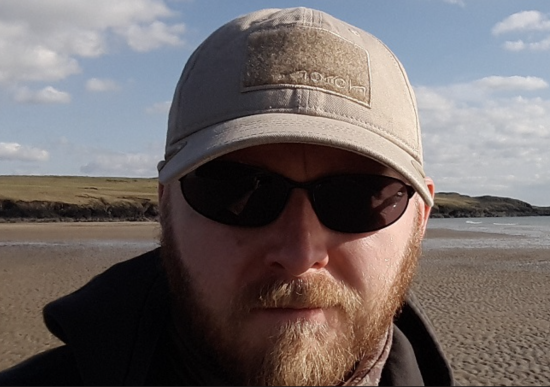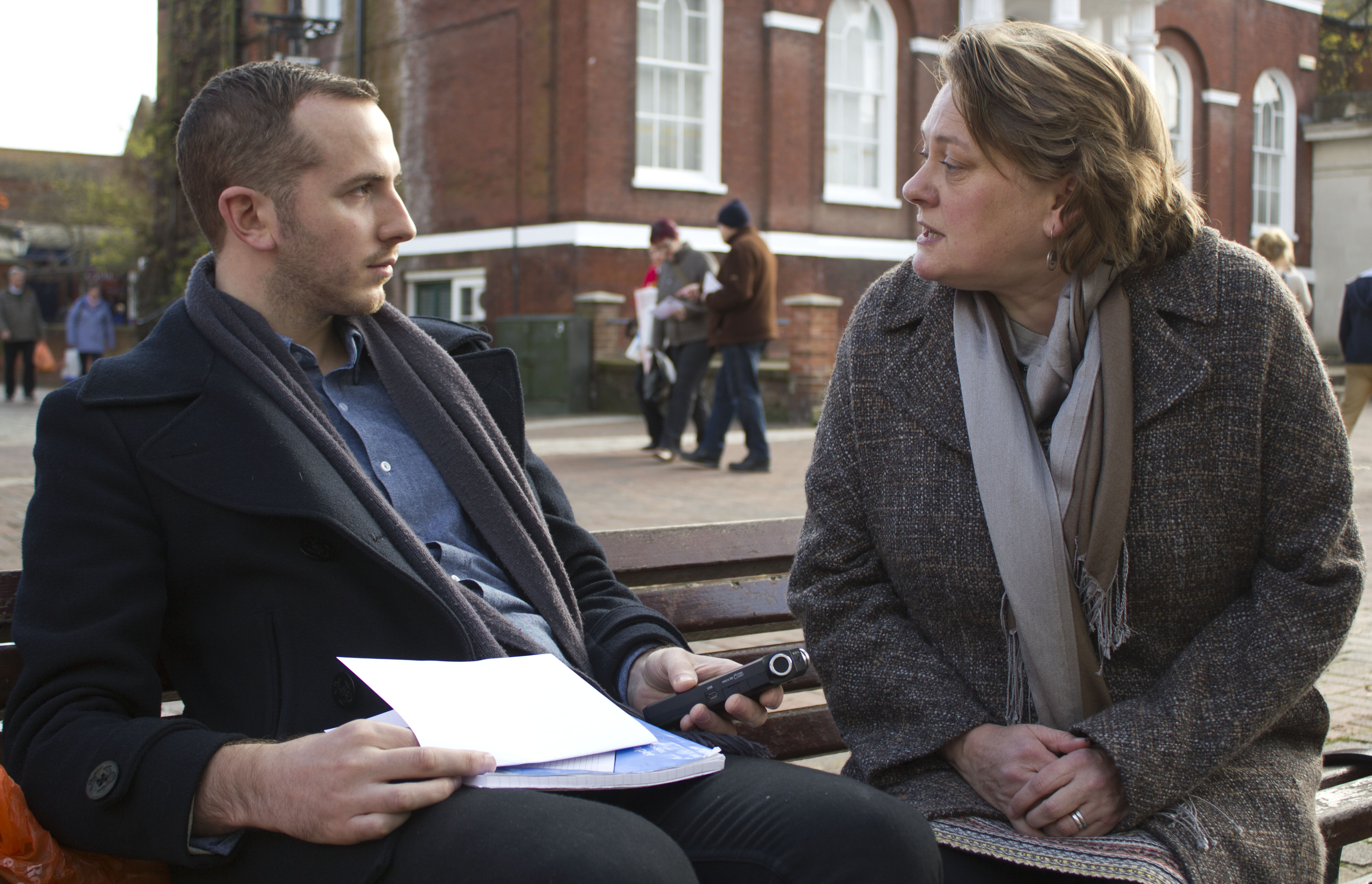Overfishing is of grave concern. Industrial trawlers use mile-long fishing nets to scrape the seabed, destroying ecosystems. In 2019, destructive fishing vessels spent over 200,000 hours in UK marine protected areas.
Dr Martyn Kurr is a marine biologist based in Bangor — the hub of ocean sciences in Wales. He teaches Marine Biology and Ecology at the University of Bangor and has authored five papers about marine life and the ocean ecosystems.
As part of The Breaker’s focussed coverage on overfishing, Jamie Guerra spoke to Dr Kurr. In this interview, Dr Kurr discusses why overfishing is a concern, the decline in fish stocks, the impact Brexit has had on the fishing industry, and how we, the public, can help prevent overfishing. Excerpts:
What is overfishing and why is it such a concern?
Overfishing is effectively where we use the marine resources that we have in an unsustainable way. So, it’s where we take more fish or any other marine organisms from their marine environment than the marine environment can actually reproduce. So, if you have an overfished stock, it means that the reproductive rate of that particular stock is actually lower than the rate at which they are removing that particular amount of biomass. That’s a massive concern because eventually, the ecosystem might become unviable. It might actually lose that viability because a particular species might have been fished so much that those individuals are no longer able to find each other and reproduce. There are a whole number of knock-on effects. For example, very low population stock becomes much more susceptible to things like climate change, pollution, and other anthropogenic impacts as well.
One of the other problems with large-scale sustainable methods is that they often have big impacts on bycatch, and also environmental damage
What effect does industrial trawling and other unsustainable fishing practices have on overfishing?
I wouldn’t necessarily say that all industrial-scale fishing is necessarily unsustainable. It all depends on how much biomass you take in. Certainly, when you have unsustainable methods, there are impacts in terms of the removal of the biomass. One of the other problems with large-scale sustainable methods is that they often have big impacts on things like bycatch, and also environmental damage as well. If you think about industrial-scale trawling, the amount of damage to the seabed is also very high, and a lot of the organisms that we find on the seafloor are highly susceptible to damage, particularly at depth. If you trawl through these environments, it can take many, many years, sometimes decades for that ecosystem to repair. That’s the problem with those large industrial-scale fishing vessels — the scale of damage is very, very high.
What other impacts does trawling have on the sea’s ecosystem and other sea life?
Obviously with bycatch, there is always going to be a problem for larger animals. If you think about a large animal like a basking shark or a dolphin, the chances of that actually are very, very high because no matter how big your net is, you’re still going to catch them. And what’s quite interesting about bycatch as a problem is that it’s one of the few areas where scientists and fishermen actually work very well together because fishers don’t want bycatch either. For them, essentially it is a wasted opportunity and a lot of quotas are actually set on biomass. If they bring in 60 per cent target species and 40 per cent bycatch, they only made 60 per cent of their profit. So, fishers are actually seeking to reduce bycatch and there are really good technological developments that have happened over the last 10-20 years.
Research shows 17 per cent of the fish population is overfished and another 58 per cent of fish have been fished to the maximum sustainable level. How plausible is it that we will eventually run out of fish?
I would err on the side of caution with regard to those figures because we’re unsure about how much we catch and where. But, yes it is entirely plausible that fish stocks will be dramatically reduced if we carry on in that regard that we are of course the problem with this idea of you like this model of it was fishing the sea to the point where the fishermen issue with that is as fish stocks deplete catch per unit effort actually goes down.
So, fishing vessels go out and catch that fish and bring it back in, and obviously as the number of fish increases, the amount of effort that those fishes have to put in, the distance they have to travel, and the technology to catch those actually increases. And I guess the big question really is more of an economic one. At what point will it become so economically viable to go out there and catch these fish?
The extinction — certainly the local extinction — of some of the most important species is definitely a possibility. We’ve seen evidence of that in the past, with things like cod stock collapses in the early 90s off the eastern seaboard of Canada. There has been some examples throughout fishing history. Things like whales, for example, have decreased to the point where they are functionally extinct within a particular [locality].
Fish are actually maturing earlier because it’s the only chance they’ve got to reproduce
The fish population in the UK is considerably down. Is there a concern with fish reproduction rates?
I think we have got a better handle now than we did 10 to 20 years ago. We’re dramatically increasing our understanding of fish reproduction rates, and we’ve a better handle now on how many fish we can and should be taking. One of the interesting knock-on effects of fishing is that fish are actually reproducing earlier, particularly pelagic fish. There is what we call fish selection, where fish are actually maturing earlier because it’s the only chance they’ve got to reproduce. So, whereas previously a specious might mature at three years old, we’re now seeing fish mature at two years old because that population is almost aware, if you like. So, these reproduction rates are actually directly influenced by fishing and it’s possible that one of the reasons that we are possibly doing a little bit better now with the number of fish we are catching and the amount they are breeding. We’ve got to the point now where the fish that we’re not catching are the ones that are reproducing.
How much does the market-based approach to fishing incentivise industrial trawling?
I would say it’s entirely incentivised. Obviously, the commercial element, they go out there and catch to sell and the market value of particular fish certainly drives fisher behaviour. In the UK, we have a very, very targeted fishery. So if you go into a supermarket or to the fishmongers you really only see a few species. Contrast that to somewhere like Portugal; they’ve got a broader diet. A Portuguese fish market biodiversity is remarkable. You see dozens of species from all depths, whereas in the UK, we’ve got this really predefined idea about what seafood is. [Portuguese fishermen] will go out, catch whatever they can. They just go out there and catch fish.
David Attenborough said: “We (the public) are paying huge sums of money, public money, to keep destructive fishing activities afloat.” How are we contributing to these activities?
This isn’t just in the UK, but globally. Yeah, a lot of fishing industries are actually propped up by subsidies, or at least supported, so there’s a lot of subsidies that [are supporting the] direct cost of fishing but also a lot of indirect costs. If you think about harbours, piers, and the infrastructure that’s required to go out there and fish, they are huge. I mean, about 10% of the entire planet’s population is actually supported in some way, shape, or form by fishing economically — everything from the manufacturer of ice, the logistics of moving the fish around and even the accounting. A lot of that is actually propped up by taxpayer subsidies.
Even if fishing has a bad year, economically those fishers are often kept in their jobs by subsidies from the government. As David [Attenborough] says they are very, very destructive practices at times. We’re in a position sometimes where officials are being paid quite a lot of money to go out there and fish. I completely agree with David’s point. But from a social and economic perspective, it’s quite difficult to say okay, let’s take these subsidies away because you’ve got to think about what happens to the people in those jobs.
What is the Common Fishery Policy and has it limited overfishing?
So, we have an exclusive economic zone which I think is three nautical miles from our coastlines. And yes, certainly in terms of UK fish stock, that’s where we’re allowed to fish. Obviously, if you go into the exclusive economic zone of another country, that’s where things get more complicated. A lot of the Brexit [discussions] were obviously held up by fishing rights, the agreements between ourselves and places like France, and other nations.
How has the Brexit agreement impacted overfishing and what does it mean for fishermen and industrial fishers?
In some cases the fishing community has been negatively impacted and a lot of that comes down to exports, the capacity to actually move biomass because obviously fish spoils very regularly, especially things like pollock and scallop. It also comes down to our market behaviour, a lot of the fish that we actually catch in the United Kingdom historically has been or exported. We don’t eat too many scallops here in the UK, they tend to be exported to Europe. The added procedures that are now required for the fishermen to move their stocks, highly perishable stocks overseas have been problematic.
I’d say the biggest influence of all is the general public. People will buy certain things and they won’t buy other things
What are activist groups doing to prevent or battle overfishing
Obviously, people like SeaShepherd and other activists have been fighting for years to raise the profile of fishing problems. In terms of rallies and boycotts and things like that they’ve all been done in the past.
I’d say the biggest influence of all is the general public. People will buy certain things and they won’t buy other things. If you think about things like the blue tick, which means it is sustainably caught fish, that carries more weight now than it used to. And certainly, people are a lot more ‘green-minded’ now when they go to the supermarket. So yeah, again, a lot of that has come of course from activists raising the profile of these issues.
This interview has been edited for brevity and clarity.








